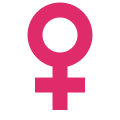| Part of a series on |
| Women in society |
|---|
 |
This is a list of political offices which have been held by a woman, with details of the first woman holder of each office. It is ordered by the countries in Europe and by dates of appointment. Please observe that this list is meant to contain only the first woman to hold of a political office, and not all the female holders of that office.
Contents
- Albania
- People's Socialist Republic
- Republic
- Andorra
- National level
- Individual ministries
- Armenia
- Kingdom of Armenia
- First Republic of Armenia
- Armenian Soviet Socialist Republic
- Armenia 2
- Austria
- Imperial
- Republic 2
- Azerbaijan
- Soviet Socialist Republic
- Republic 3
- Belarus
- Soviet Socialist Republic 2
- Belgium
- Kingdom
- Bosnia and Herzegovina
- Federation of Bosnia and Herzegovina
- Republika Srpska
- Bulgaria
- Kingdom 2
- People's Republic
- Republic 4
- Croatia
- Kingdom 3
- Socialist Republic of Croatia
- Republic 5
- Cyprus
- Kingdom 4
- Republic 6
- Northern Cyprus
- Czech Republic
- Duchy of Bohemia
- Kingdom of Bohemia
- Czechoslovakia (1918–1992)
- Czech Republic (1992–onward)
- Denmark
- National level 8
- Individual ministries or regions 3
- Faroe Islands
- Greenland
- Estonia
- Danish Estonia
- Swedish Estonia and Livonia
- Autonomous Governorate of Estonia
- Republic of Estonia
- Estonian Soviet Socialist Republic
- Estonian Government in Exile
- Republic of Estonia 2
- International level
- Finland
- Swedish Realm
- Grand Duchy
- Republic 7
- France
- National level 11
- Individual ministries or regions 4
- Georgia
- Kingdom 5
- Georgian Soviet Socialist Republic
- Republic 8
- Germany
- Holy Roman Empire
- Weimar Republic
- Allied Occupation
- Democratic Republic
- Federal Republic (West)
- Federal Republic (United)
- Greece
- Kingdom 6
- Republic 9
- Hungary
- Kingdom 7
- People's Republic 2
- Republic 10
- Iceland
- Kingdom 8
- Republic 11
- Ireland
- Kingdom of Ireland
- United Kingdom of Great Britain and Ireland
- Irish Republic
- Free State
- Ireland (Republic of Ireland)
- Italy
- Latvia
- First Republic
- Latvian Soviet Socialist Republic
- Second Republic
- Liechtenstein
- Lithuania
- Republic 12
- Lithuanian Soviet Socialist Republic
- Republic of Lithuania
- Luxembourg
- County, Duchy and Grand Duchy
- Grand Duchy 2
- Malta
- Colony
- Republic 13
- Moldova
- Moldavian Soviet Socialist Republic
- Republic of Moldova
- Transnistria
- Monaco
- Montenegro
- Serbia and Montenegro
- Republic of Montenegro
- Netherlands
- Spanish Netherlands
- Dutch Republic
- Kingdom 9
- North Macedonia
- Norway
- Svalbard
- Poland
- Kingdom (1385–1569)
- Second Republic 2
- People's Republic 3
- Republic 14
- Portugal
- County
- Kingdom 10
- Republic 15
- Romania
- Kingdom 11
- People's Republic 4
- Republic 16
- Russia
- Imperial 2
- Interim Republic
- Union of Soviet Socialist Republics
- Federation
- San Marino
- Serbia
- Imperial 3
- Despotate
- Principality
- Federal People's Republic of Yugoslavia
- Federal Yugoslavia
- Republic of Serbia
- Kosovo
- Slovakia
- List of Slovak female holders of political offices before independence
- Slovenia
- Spain
- Kingdom 12
- Second Republic 3
- Francoist Spain
- Kingdom (restored)
- Sweden
- Kingdom 13
- Switzerland
- Turkey
- Ottoman
- Republic 17
- Ukraine
- Soviet Socialist Republic 3
- Republic 18
- United Kingdom
- Great Britain
- Great Britain and Ireland
- Vatican City
- See also
- Footnotes and references